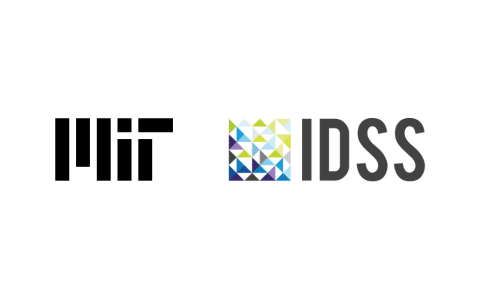Data Science Foundations
What you learn in Data Science Foundations ?
About this Course
Data science in today’s world is an absolute necessity and not just a value-add. Whatever domain you are working in, there will be data and hence, there will be a need to find out insights from this data. Data Science is a field which uses methods and algorithms for extraction of information from data provided either it is structured data or unstructured data. Due to growth in data and evolution in technology, the domain of Data Science has seen a tremendous rise. In this course, we shall start off by understanding the importance of machine learning and then we shall look at two algorithms which are linear regression and logistic regression.
Course Outline
Data is the soul of Machine Learning, and there are specific methods to deal with it efficiently. This module first introduces Machine Learning and talks about the mathematical procedures involved. You will learn about supervised and unsupervised learning, Data Science Machine Learning steps, linear regression, Pearson's coefficient, best fit line, and coefficient of determinant. Lastly, you will be going through a case study to help you effectively comprehend Machine Learning concepts.
With this course, you get
Free lifetime access
Learn anytime, anywhere
1.0 Hours
of self-paced video lectures
Frequently Asked Questions
What are the fundamentals of data science?
Data science is a broad field with applications in almost every industry and different people may describe it differently. You would find mentions of fundamentals of data analytics, python programming, statistics, and probability. However, the most important and fundamental aspect of data science is - data, the goal or the problem that needs to be achieved or solved, the domain expertise in the problem area, and the scientific methods that can be used to work on all the available data, to get insight.
Scientific methods are tools to study data in the context of a real-world hypothesis. Data is real and factual but needs to be put through a process to reveal hidden information required to validate the hypothesis or achieve something significantly important. While going through the program, students would learn scripting in python, familiarity with algorithms, statistics, and probability along with other skills required for the profession. It’s worth noting here that data science is not a one-man job and there are various skill sets that each team member would have. So, if mathematics and statistics is not particularly your forte, you can still pursue data science as a career in a role that best utilizes your strengths.
An enquiring mind with a clarity of the organizational requirements can investigate data by incorporating appropriate methods. There are no right or wrong ways of solving a data science problem.
What is the fee for a data science course?
You may not have to pay to get knowledge of data science like this free course provides complete information on the foundations of data science. However, if you plan to learn the subject at a deeper level and be ready for a bright career in the industry then you must pursue a course like the PG Program in Data Science and Business Analytics, which not only covers the foundations of data analytics and data science but takes you on a journey that will transform your career.
So, a data science course may range from free to a couple of lakhs depending on how comprehensive it is. A good institute usually offers payment plans to make it easier for the students. It’s recommended to understand the course offering before signing up. Find out all you can from curriculum to collaborating universities/institutes to get a clear idea of the course value for your career.
How long is the data science course?
The length of the course depends on several factors including the syllabus, schedule, and learning hours per session. Sometimes the courses are available on-demand and do not have a strict duration. It has been seen that the rate of completing a course improves in a scheduled setting. So when you enroll in a course that has a timeline, there is a much higher possibility of attending the required courses regularly.
A detailed data science course is usually for less than a year. This works in the favor of students as they are ready with skills to start in a new career or progress in the current one within a year.
How can I become a data scientist after 12th science?
There are several paths, and each can lead you to your preferred profession in data science. You may choose graduation in Math and statistics and enroll in a data science course along with it. This way you will get a good foundation in statistics during your formal education and will also get the skills you need in your career as a data scientist.
If, however, you wish to pursue graduation in another domain, like fashion, health or business then also you can work towards a career in data science with a parallel course in data science. The reason being, data scientists don’t work in a silo, instead, they work with domain experts in every industry. So if you decide to be in the health industry, your domain knowledge combined with skills in data science will give you an edge in your career.
Who can do a data analyst course?
Anyone can do the fundamentals of data analytics but someone who has strong analytical and numerical skills will find it most suitable to their aptitude. Data analytics requires the examination of datasets to get insights so you should be comfortable with numerical and non-numerical data. Considering the magnitude of data available today and the easy access to computing power, the study and analysis of data have become crucial for every commercial organization. If your interest overlaps with the requirements, this is the best time to go ahead with it.
Success stories
Can Great Learning Academy courses help your career? Our learners tell us how.And thousands more such success stories..
Related Data Science Courses
Popular Upskilling Programs
Explore new and trending free online courses
Relevant Career Paths >
Other Data Science tutorials for you
Data Science Foundations
In the digital age, data has become the lifeblood of organizations, driving decision-making, optimizing processes, and delivering valuable insights. Data science, a multidisciplinary field at the intersection of statistics, mathematics, computer science, and domain knowledge, plays a pivotal role in extracting meaningful information from vast datasets. At its core, data science relies on foundational concepts that provide the necessary framework for understanding, analyzing, and interpreting data. Let's explore some of these key pillars that form the bedrock of data science.
Data Collection and Preprocessing:
Data science begins with data acquisition, a process that involves collecting and assembling data from various sources, such as databases, APIs, websites, or even physical sensors. This data is often heterogeneous and noisy, necessitating preprocessing steps to clean, transform, and organize it into a structured format. Data cleansing, dealing with missing values, and handling outliers are vital steps to ensure the quality of the data before proceeding with analysis.
Statistics and Probability:
Statistics serves as the backbone of data science, enabling professionals to summarize and interpret data, identify patterns, and draw inferences. Probability theory provides the basis for uncertainty modeling, essential in situations where data is noisy or incomplete. Techniques such as hypothesis testing, regression analysis, and Bayesian inference are commonly employed to make data-driven decisions and predictions.
Machine Learning:
Machine Learning (ML) algorithms empower data scientists to build predictive models and discover patterns in data. Supervised learning deals with labeled data, where the algorithm learns from past examples to make predictions on new data. Unsupervised learning, on the other hand, involves finding patterns in unlabeled data, enabling clustering and dimensionality reduction. Reinforcement learning is another branch, where agents learn from their interactions with an environment to optimize their actions and achieve specific goals.
Data Visualization:
Visual representation of data is a powerful tool to communicate complex information effectively. Data visualization allows data scientists to explore patterns, trends, and relationships, making it easier for stakeholders to grasp insights and make informed decisions. Graphs, charts, heatmaps, and interactive dashboards are just a few of the visualization techniques used in data science.
Programming and Tools:
Proficiency in programming languages is crucial for data scientists to manipulate data and implement algorithms. Python and R are two of the most popular programming languages in the field, offering extensive libraries for data manipulation, analysis, and machine learning. Additionally, data scientists leverage various tools and frameworks, such as TensorFlow, PyTorch, and scikit-learn, to simplify the development and deployment of ML models.
Big Data and Distributed Computing:
The increasing volume and complexity of data necessitate the use of big data technologies. Distributed computing frameworks like Apache Hadoop and Apache Spark enable the processing of massive datasets across multiple nodes, enhancing scalability and performance. Data scientists need to be familiar with these tools to handle big data challenges efficiently.
Data Ethics and Privacy:
As data science becomes more pervasive, ethical considerations and data privacy gain prominence. Data scientists must be conscious of the potential biases present in the data and the ethical implications of their analyses. Ensuring data privacy and complying with data protection regulations are essential to maintaining public trust and safeguarding individuals' sensitive information.
In conclusion, data science is an ever-evolving field that relies on strong foundational principles. The ability to collect and preprocess data, understand statistics and probability, apply machine learning algorithms, visualize data effectively, program efficiently, handle big data, and prioritize data ethics are essential skills for any data scientist. By mastering these foundations, data scientists can unlock the true potential of data and drive valuable insights that foster innovation and informed decision-making across various industries.














































